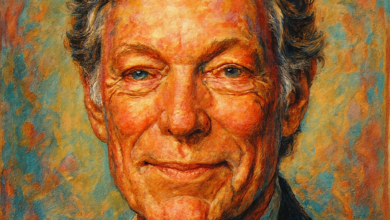
Introduction to American Culture
American culture is a rich tapestry woven from the threads of numerous ethnicities, traditions, and histories. It embodies a multitude of influences, reflecting the diverse backgrounds of its inhabitants. The United States has long been viewed as a “melting pot,” a term that symbolizes the blending of various cultures, leading to the formation of a unique American identity. From Native American customs to European traditions, African heritage, and Latin American influences, the essence of American culture is dynamic and ever-evolving.
The geographical vastness of the United States also plays a significant role in shaping its culture. Each region presents distinct social norms and values, influenced by local customs, climate, and history. For instance, the cultural expressions found in the Northeastern states often differ from those in the South or on the West Coast. This regional diversity highlights the complexity of American culture and underscores the importance of understanding local contexts.
In addition to regional variations, other factors such as immigration, globalization, and technology have further enriched American culture. As people from around the world have settled in the U.S., they have brought their unique customs and practices, which have been integrated into the broader cultural landscape. Furthermore, advancements in communication and transportation foster cross-cultural interactions, allowing for the exchange of ideas and traditions across national borders.
Beyond the influences of diverse populations and regional distinctions, underlying values such as individualism, equality, and freedom are deeply rooted in American society. These core principles contribute significantly to the nation’s identity and inform its social norms, influencing aspects such as personal relationships, work cultures, and community interactions. Understanding these dimensions is crucial to comprehending the complexities of American culture and its ongoing evolution.
Historical Influences on American Social Norms
The formation of American social norms is deeply rooted in the country’s historical context, which has been shaped by significant events and periods. Beginning with the colonization era in the 17th century, social norms were influenced by a mix of indigenous cultures and European traditions. Early settlers brought with them values related to community, work ethics, and religious beliefs, which laid the groundwork for American societal values. The emphasis on individualism, for example, can be traced back to this period as settlers sought personal freedoms and self-determination.
As the nation progressed, the revolutionary fervor of the late 18th century played a pivotal role in shaping American identity. The ideals expressed in the Declaration of Independence emphasized liberty, equality, and the pursuit of happiness, embedding these principles into the social fabric. This era forged a collective consciousness around democratic values, which would continue to evolve throughout American history.
The 19th century, marked by events such as westward expansion and the Civil War, further refined social norms. The expansionist belief in Manifest Destiny cultivated a sense of exceptionalism, while the tragic legacy of slavery and the subsequent struggle for civil rights illuminated profound societal contradictions. The abolitionist movement and women’s suffrage galvanized efforts toward social justice and equality, asserting the necessity for inclusive norms that reflect diversity in gender and race.
The 20th century brought about further transformative shifts with movements centered around civil rights, feminism, and LGBTQ+ advocacy, reshaping American social norms toward inclusivity and acceptance. These varying historical influences have collectively crafted a complex narrative that highlights both progress and ongoing challenges. The legacy of these movements continues to resonate in contemporary American society, as new generations grapple with implementing values tied to justice, equality, and mutual respect.
Core American Values
American culture is deeply rooted in a set of core values that shape the identity of its people and govern social interactions. Among these foundational values, individualism stands out prominently. This concept emphasizes the importance of personal autonomy and self-reliance, positioning individuals as the primary agents of their own destinies. For instance, the American Dream—a prevalent ideal in the United States—is often portrayed through stories of individuals who rise from humble beginnings to achieve remarkable success through hard work and determination. This narrative exemplifies how individualism is celebrated and encouraged in American society, fostering a competitive spirit and personal initiative.
Another critical value is freedom, which encompasses both personal liberties and democratic rights. This principle is enshrined in the United States Constitution and is evident in the way Americans advocate for their rights, whether through peaceful protests, voting, or engaging in public discourse. The significance of freedom is highlighted in various movements throughout history, including the civil rights movement, where individuals fought for the freedoms and equality of all citizens, reinforcing the belief that every person should have the opportunity to express themselves without fear of oppression.
Equally pivotal is the value of equality, which underscores the belief that all individuals are entitled to equal treatment and opportunities, regardless of their background. This tenet has driven legislative changes and social reforms aimed at eradicating discrimination based on race, gender, or socioeconomic status. Personal anecdotes, such as those of individuals who overcome systemic barriers to succeed, serve to illuminate the ongoing struggle for equality in American life.
Lastly, the pursuit of happiness encapsulates a uniquely American ethos, underscoring the belief that individuals should actively seek fulfillment and well-being. This pursuit is not merely about financial success but encompasses personal growth, relationships, and overall life satisfaction. Collectively, these core American values shape social norms and interactions, influencing everything from family structures to workplace dynamics, and continue to evolve as society progresses.
Social Norms in Everyday Life
Understanding social norms in the United States is essential for effective communication and interaction within its diverse society. These unwritten rules govern behavior in various contexts, such as greetings, personal space, and dress codes. For instance, in casual encounters, it is common to greet one another with a simple “hello” or “hi.” However, the level of formality can vary, particularly in professional settings where a handshake serves as a traditional gesture of introduction. Respecting individuals’ personal space is another key aspect of American social norms; typically, people maintain a distance of about 1.5 to 3 feet during conversations. In contrast, certain intimate relationships may allow for closer proximity, showcasing how context can influence these unwritten rules.
Dress codes in the U.S. also reflect societal expectations and can differ significantly between environments. For example, business attire is often expected in corporate workplaces, while casual clothing may be more acceptable in creative fields or informal gatherings. Specific events, such as weddings or formal dinners, carry their own dress expectations, which can vary greatly across regions and cultures. In relaxed social settings, such as barbecues or informal parties, casual dress is usually the norm, further exemplifying the divergence in attire based on context.
Regional differences play a crucial role in shaping these social norms. For example, what is considered polite in New York City might not align with practices in a small town in the Midwest. In some regions, individuals might prioritize direct communication and assertive interaction, while others tend to value indirect communication and a more reserved approach. Recognizing these geographic variations can enhance understanding and foster positive interactions within this multifaceted culture. By grasping the nuances of American social norms, individuals can navigate various situations with increased confidence and respect.
Family and Community Structures
The family unit serves as a fundamental pillar of American culture, significantly influencing societal values and norms. Typically characterized by a nuclear makeup, consisting of parents and children, American families have transitioned to more diverse structures over the years, including single-parent households, blended families, and same-sex partnerships. This evolution reflects broader societal changes and the growing acceptance of varying family dynamics. Regardless of structure, family remains a central aspect of social life, acting as the primary source of emotional support, cultural transmission, and moral guidance.
In addition to the family unit, communities play a vital role in shaping cultural values. American communities often foster a sense of belonging and identity, with local organizations and groups providing opportunities for civic engagement and social interaction. Community involvement is not merely a social activity; it builds a network of support systems that enhances individual well-being and connects people through shared interests and objectives. Participation in community events, whether they are religious gatherings, sports leagues, or volunteer opportunities, fosters relationships that further solidify cultural ties.
Moreover, the significance of community engagement in American culture cannot be overstated. It is through the collective efforts of community members that social norms are established and reinforced. These norms may include a strong emphasis on individualism, accountability, and volunteerism—values that are often encouraged within family settings and further perpetuated through community interactions. The interplay between family dynamics and community involvement showcases how they mutually reinforce one another, ultimately shaping the social fabric of American society.
The impact of familial and community structures on American cultural values continues to evolve as societal expectations shift. Fostering resilience and adaptability within these frameworks remains essential, as families and communities navigate the complexities of modern life together.
Diversity and Multiculturalism
Diversity stands as a cornerstone of American culture, shaping its identity through a myriad of ethnicities, religions, and lifestyles. The United States is often referred to as a “melting pot,” where individuals from different backgrounds come together, contributing their unique perspectives and traditions to the collective American experience. This blending of cultures fosters an environment rich in creativity, innovation, and resilience.
The significance of multiculturalism in America extends beyond mere coexistence; it promotes a deeper understanding and appreciation of various social norms and values. As people from diverse backgrounds interact, they create a dynamic dialogue, allowing for the exchange of ideas and traditions. This interaction not only enriches the cultural fabric of society but also challenges stereotypes and fosters a greater sense of empathy among individuals. The presence of diverse communities encourages critical thinking and broadens one’s worldview, leading to a more inclusive and equitable society.
While the benefits of diversity are prominent, the path to achieving a truly multicultural society is not without challenges. Issues such as discrimination, prejudice, and inequality frequently arise, posing barriers to social cohesion. Nevertheless, the ongoing dialogue about diversity and inclusion reflects society’s commitment to confront these issues. Policies aimed at protecting minority rights and promoting equitable opportunities are essential in addressing these challenges. Moreover, educational initiatives that celebrate multiculturalism play a crucial role in nurturing understanding, respect, and acceptance among citizens.
Ultimately, embracing diversity and multiculturalism is integral to the American ethos. By acknowledging and valuing the richness of varied experiences, individuals can cultivate a community that not only reflects the nation’s identity but also empowers every member to thrive. The harmony that arises from such integration is pivotal in enhancing the overall American experience, making diversity a true asset to society.
Cultural Expressions: Arts and Media
American culture finds profound representation in its diverse forms of arts and media, which play a pivotal role in shaping social norms and values. Music, for example, serves as both a reflection of societal changes and a catalyst for them. Genres such as jazz, rock, and hip-hop articulate the experiences of various communities, often addressing themes of struggle, identity, and resilience. Through these musical expressions, listeners gain insights into the cultural fabric of America, illustrating how artists capture and influence prevailing attitudes.
Film and literature further expand this dialogue, offering narratives that explore the complexities of American life. Hollywood, as the epicenter of the film industry, not only entertains but also reflects societal ideals and conflicts. Films often portray the American Dream, while simultaneously questioning its accessibility and relevance in contemporary society. Such portrayals can reinforce stereotypes or challenge prevailing norms, helping audiences to either accept or critically evaluate the cultural narratives presented to them. Similarly, literature has served as a powerful vehicle for expressing dissent, advocating for social justice and amplifying marginalized voices.
Visual arts also play a significant role in conveying the complexities of American culture. From the works of renowned artists such as Andy Warhol to contemporary installations, visual expressions often comment on social issues and power dynamics. These artistic endeavors can provoke thought, inspire dialogue, and encourage reflection on the values that underpin American society. Popular culture, in particular, is significant in this context, as it synthesizes various cultural elements, allowing for a broader audience engagement and understanding of social norms.
Overall, the interplay between arts, media, and American cultural expressions illustrates a dynamic landscape where societal beliefs are both highlighted and contested, ultimately shaping the collective identity of the nation.
Contemporary Issues Shaping American Culture
Contemporary American culture is deeply influenced by a myriad of social issues that resonate across various facets of society. Among these, technology, immigration, and social justice movements stand out as significant factors that reshape traditional values and norms. The advent of technology has altered communication, relationships, and even the basic way of life. Social media platforms have become central to interactions, impacting personal connections and the public discourse. As a result, the acceleration of information sharing has both illuminated social issues and created echo chambers, thereby influencing American cultural dynamics.
Immigration is another pivotal issue, contributing to the multicultural tapestry of the nation. The influx of diverse populations enriches American culture but also challenges existing norms. This evolution prompts discussions surrounding identity, belonging, and cultural integration, pushing society to reconcile these new influences with traditional values. The impact of immigration transcends economic contributions, as it fosters a larger cultural conversation about inclusivity and acceptance in the face of differing perspectives.
Moreover, social justice movements, such as Black Lives Matter and Me Too, have sparked significant discourse on inequality, systemic racism, and gender violence. These movements encourage a reevaluation of historical narratives and persistent issues that have shaped American society. As communities engage with these challenges, they seek to forge a more equitable future. Such societal transformations demand that both individuals and institutions adapt, thus altering the landscape of American cultural norms.
In essence, contemporary issues are not merely challenges; they are catalysts for change that require a reevaluation of long-standing beliefs and practices within American culture. The collective response to technology, immigration, and social justice movements highlights the evolving nature of cultural norms as society endeavors to achieve a more inclusive and equitable framework.
Conclusion: The Future of American Culture
The American culture has consistently demonstrated a remarkable ability to evolve, reflecting the myriad influences of globalization, technological advancements, and shifts in social attitudes. As we reflect on the essential social norms and values that have shaped the nation, it becomes clear that these elements are not static but dynamic, continuously influenced by various factors, including immigration, diversity, and socio-economic changes.
One of the significant trends observed in recent years is the increasing emphasis on inclusivity and social justice. Movements advocating for racial equality, gender rights, and LGBTQ+ acceptance highlight a cultural shift towards recognizing and valuing diverse identities. These movements not only challenge traditional norms but also prompt conversations around systemic inequities. As these discussions become more prevalent, the American cultural landscape is likely to become more pluralistic, with a broader array of voices represented.
Furthermore, technology plays a pivotal role in shaping contemporary American culture and is expected to continue doing so. The rise of social media and digital communication has transformed how individuals engage with one another, share ideas, and participate in cultural dialogues. This hyper-connectivity fosters a unique cultural exchange and accelerates the dissemination of new norms and values, sometimes leading to rapid changes within community standards and public opinions.
However, challenges remain, such as the tension between preserving traditional values and embracing progressive change. The ongoing debate around issues like free speech, cultural appropriation, and the impact of misinformation on social media presents complexities that will continue to challenge American society in the future. Navigating these challenges will require ongoing reflection, open dialogue, and a commitment to understanding the multiple facets of cultural evolution.
In conclusion, the future of American culture is poised to reflect both continuity and change. The interplay of new cultural values alongside established norms suggests a dynamic trajectory, influenced by societal needs, challenges, and aspirations. As American culture continues to evolve, it will be essential for individuals and communities to remain engaged and adaptable in this ever-changing social landscape.






















